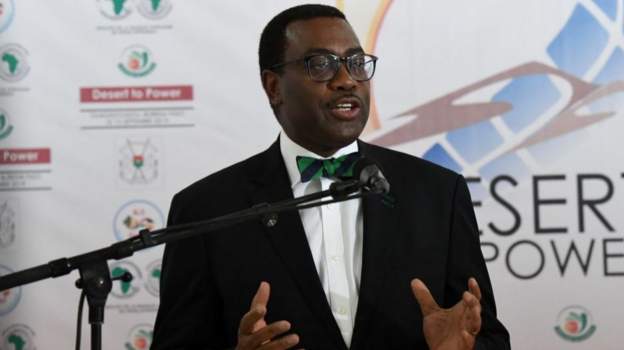Between 2012 and 2021, industry’s contribution to the Ghana Gross Domestic Product (GDP) grew from $11.9 billion to $18.7 billion, driven upwards by an upsurge in the value-added of manufacturing in GDP.
This almost tripled to 6.6%, from 2.5%, the African Development Bank has stated in its brief on Ghana.
Likewise, gross fixed capital formation strengthened from $7.4 billion in 2012 to $12.2 billion in 2021 (constant 2010 prices), a 65% increase. The increase for all African Development Fund countries was 49%.
In the same period, the economic diversification index increased from 0.77 to 0.81.
Finally, Ghana’s score on the logistics performance index rose from 2.51 to 2.57 over the same time.
Despite these achievements, however, AfDB said the country’s global competitiveness index score dropped from 3.79 in 2012 to 3.58 in 2021.
Over 2012–2021, Ghana’s industrialisation was guided by the Ghana Industrial Policy of 2011, which was complemented by the Made-in-Ghana Policy and a 10-point agenda for industrialisation as of 2016.
These policies were implemented through various programmes, including the Industrial Sector Support Programme 2011–2015, followed by the National Industrial Revitalisation Programme, which includes the National Entrepreneurship and Innovation Programme and such flagship projects as “One District One Factory” and “One Region One Park”.
Drawing on Ghana’s comparative advantages and market potential, the strategic focus of the country’s industrial policies, the AfDB, said is in twofold.
One is to promote local content in resource-based industries on one hand, and to develop manufacturing activities - including the processing segments of modernised agricultural value chains—on the other. The private sector is expected to spearhead the work.
Way forward
With the right policies in place, the AfDB said industrialisation in Ghana will diversify the economy and generate more wealth.
It will also create a greater number of better jobs, largely in the private sector. That is why the Bank’s country strategy for 2019–2023 includes a pillar on industrialisation and private sector development.
It was under this pillar that in November 2021, the Bank approved $40 million to capitalise
Development Bank Ghana, a newly established institution that seeks to overcome an important constraint to private-sector-led industrialisation.
It concluded that Development Bank Ghana will supply long-term, affordable finance to micro, small, and medium-sized enterprises operating in agribusiness, manufacturing, information and communication technologies, and high-value service.
Latest Stories
-
Prof. Bokpin backs GH¢1 fuel levy as necessary support for energy sector
8 minutes -
This is the right time to impose Gh¢1.00 fuel levy – John Jinapor
23 minutes -
Ntim Fordjour inspires Assin South BECE candidates, donates 3,400 mathematical sets
29 minutes -
Ghana fake credential allegation unmasks global elite deceit
31 minutes -
Ghana signs MoU with Jubilee, TEN fields partners to extend license to 2040
36 minutes -
Ghanaian AI expert Frank Mensah bolsters cybersecurity in healthcare and mobile money
1 hour -
Today’s front pages: Wednesday, June 4, 2025
1 hour -
Singer Jessie J reveals early breast cancer diagnosis
2 hours -
Deadly mushroom lunch cook tells court she threw up toxic meal
2 hours -
Japan backs Mahama’s Volivo Bridge dream under $10bn ‘Big Push’ plan
2 hours -
Nearly GH¢1bn released to District Assemblies for Q1 – Finance Minister
2 hours -
Ken Ofori-Atta’s lawyers are dictating the pace – Baffour Awuah tells OSP
2 hours -
Environmental Protection Authority readies to ban plastic in Ghana
3 hours -
Don’t rely on Ken Ofori-Atta to incriminate himself – Manhyia South MP tells OSP
3 hours -
These Americans are done with Trump. So they’re leaving America
3 hours

